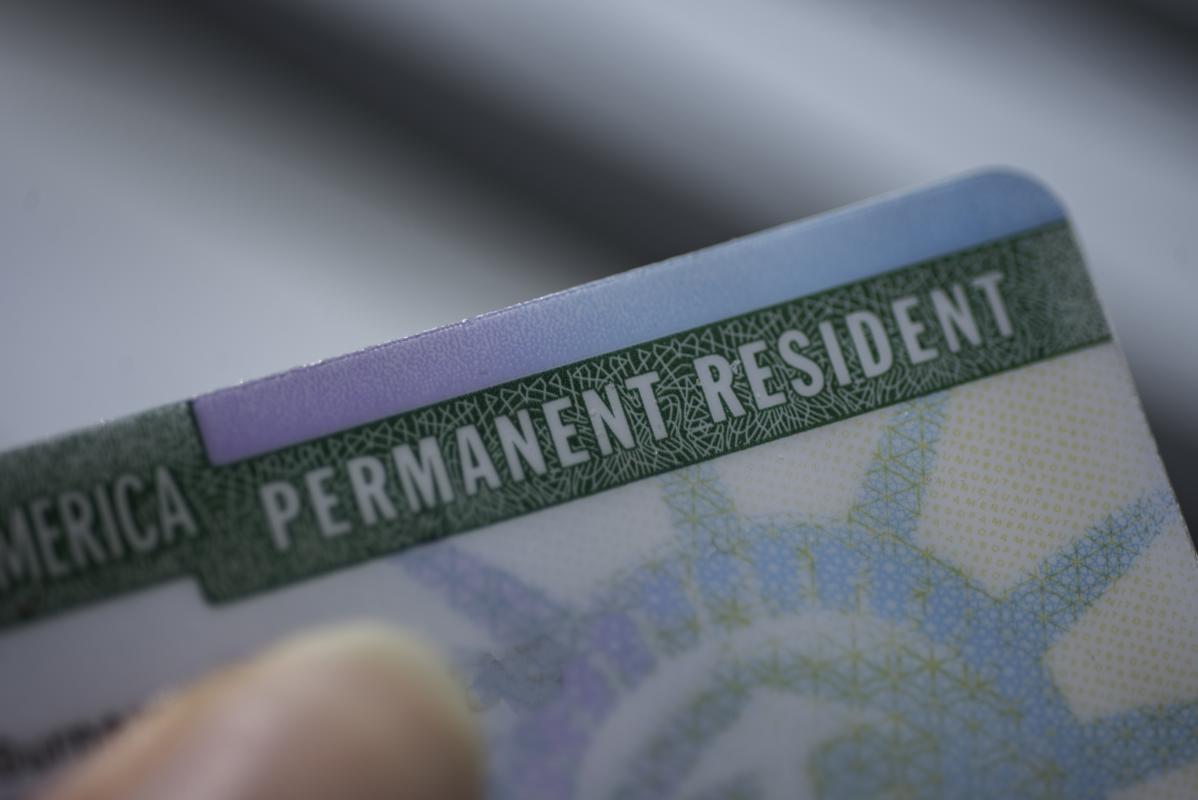What is a Green Card?
A Green Card is a permanent visa for the United States of America. A Green Card or Permanent Resident Card gives you the status of permanent residency and legal rights to work in the country. You are eligible to apply for a USA citizenship once you have a Green Card. A Green Card makes it possible for a non-U.S citizen to gain permanent residency in the country. Possessing a Green Card is an essential requirement for immigrating to the USA.
Ways to Get a Green Card
Your Green Card application varies based on the category under which you are applying. Almost all employment-based Green Card categories require an employment offer from the company and a petitioning employer, while other types allow you to self-petition. The U.S. government grants more than a million Green Cards every year. Majority of the cards are issued to family members of U.S. citizens and existing Green Cardholders. The rest are given to workers from other countries seeking employment in the United States. There are 5 main ways an applicant can obtain a green card for the United States:
Green Card through Employer (Employment-Based Green Card: EB1, EB2, EB3 Green Card Categories)
The employment-based preference categories' overall concept is very similar to the family-based categories. The visa bulletin classifies the specific employment-based immigrant visa categories available under the laws and specifies priority dates for each type.
Employment-based Green Card categories are:
- EB1: Priority workers include those with exceptional ability in the fields of science, education, arts, athletics, outstanding researchers and professors, individual executives, and multinational corporations' managers.
- EB2: These visas are reserved for employees who have exceptional ability in the fields of science, arts or business, and advanced degree professionals.
- EB3: A person is a qualified professional under this category if he holds a baccalaureate degree or an equivalent degree. A skilled worker with an ability to demonstrate at least 2 years of experience or training and is performing work for which there are no qualified workers are not available in the U.S can qualify for this category.
- EB4: This category includes religious workers, special immigrant juveniles (SIJs), and various other special immigrants.
- EB5: Persons who invest a certain of money in a business or regional centre in the U.S. and who create a minimum of 10 jobs for U.S. workers can obtain permanent residency through the EB-5 Investor Program.
Other Alternatives for Green Card are:
Investment Based Green Card: The EB5 Green Card, popularly known as an immigrant investor program, is an employment-based Green Card that makes it possible for foreign investors to obtain permanent residency in the United States. The applicant's spouse and dependent children under 21 years of age are included and receive the same status as the principal investor.
Family-Based Green Card: If a U.S. citizen or permanent resident appeals to a family member who is not from the country, the immigrant will fall into one of the two categories (mentioned below). The categories define the kind of relationship that the immigrant has with the sponsor which in turn determines the priority on which the immigrant will receive in getting the card. Getting a Green Card through a family member is the most popular, easiest, and accessible way to get a Green Card. This is also one of the most effortless ways to obtain legal permanent residency. There are two groups of family-based immigrant visa categories:
Immediate Relative: There are only a handful of immediate relative types. These reserved specific
categories are:
- Spouse of a U.S. citizen
- Unmarried children of a U.S. citizen (below 21 years of age)
- Orphan adopted abroad by a U.S. citizen or orphan to be adopted in by a U.S. citizen.
- Parent/Parents of a U.S. citizen (not less than 21 years old)
Family Preference: The family preference categories include the remaining qualifying relationships within the family and some specified relationships with a lawful resident. The family preference categories include:
- Unmarried, adult children (age 21 or over) of U.S. citizens
- Spouses and unmarried children (under age 21) of permanent residents
- Unmarried adult children of permanent residents
- Married children of U.S. citizens
- Siblings of adult U.S. citizens
Green Card Lottery or Diversity Visa Immigration: The Green Card lottery is probably the choicest known to obtain a green card. Every year, the United States grants 55,000 prospective immigrants the chance to possess a Green Card through the Diversity Visa (DV) Lottery system. The lottery is only open to nationals of countries whose immigration rates to the USA are the lowest.
Green Card through Asylum & Refugee status: The United States is a haven for persons victimized on account of race, religion, nationality, membership in a particular social group, or political opinion. The U.S. extends protection to eligible foreign-born nationals by providing a pathway to permanent residency and citizenship through two programs: The Refugee Resettlement Program and the Asylum Program. If you have been granted refugee status in the past, you could apply for a Green Card a year after receiving refugee status. The Applicant's spouse and children will also need to apply for a Green Card if they were conceded to the United States as refugees.
Why Choose Nysa Global?
Nysa Global provides an ever-increasing platform for its clients to grow and excel in every aspect of life according to their individual goals and aspirations. In the modern world of globalization, those with exceptional means and abilities can best achieve their aspirations within a culture that is cultivating, nurturing, and motivating. Nysa Global is a professional services firm working with families looking to expand their footprint abroad. We work through our offices in India, Hong Kong, and the United States of America. Besides offering business advisory and management, we also offer legal, global tax and immigration advisory services. These services are either in-house expertise or are provided in syndication with best-in-class service provides and subject experts.
FAQs
1. What is a lawful permanent resident?
A lawful permanent resident is an individual who has been granted the right to stay and live in the United States for an invariable time. These individuals have the right to work in the U.S. for most employers or even take the self-employment route.
2. What’s the easiest and quickest way to get a U.S. Green Card?
Close relatives of U.S. citizens and highly skilled workers have the best chance of obtaining a Green Card. Easy is subjective on what one is eligible for. A family relationship with an existing U.S. citizen can make immigration effortless for a few applicants. A job offer works in favour of others. The diversity visa lottery is the easiest way for citizens of eligible countries.
3. How long does it take to get a Green Card?
It can take anywhere between 7 to 33 months to obtain a Green Card. The processing and converting time depends on the type of Green Card and the location of the processing office.
4. Why would a green card application be denied
Few reasons that immigrant visa or Green Card applications may be denied:
- General error
- Concern that the applicant is a security risk
- Incompetency for health or criminal reasons
- A finding that the applicant is likely to become reliant on government assistance
5. Can I work in the U.S. while waiting for my Green Card?
If an applicant already has a valid work visa, such as an H-1B or L-1 visa, he/she can continue working in the United States even while their green card application is being processed. Anyone who already has a valid work visa can continue working in the country even while applying for a green card.
6. How much does it cost to get a Green Card?
The total charge for each type of green card application can be different from each other. Government fees for marriage-based green cards are around $1,760, if spouses seeking a Green Card live in the United States and about $1,200 if the spouse lives abroad. This is in addition to other costs, such as a fee for a mandatory medical examination.
7. What is the main difference between an immigrant and non-immigrant visa?
Immigrant visas are granted to foreign nationals who want to live permanently in the U.S. Non-immigrant visas are for foreign individuals wishing to enter the U.S. temporarily.
8. When can I apply for citizenship?
- General requirements for citizenship are:
- Applicant must be of minimum 18 years of age
- Permanent resident for not less than 5 years
- Proof you have lived in the state/USCIS district you intend to apply from for at least 3 months
- Demonstrate continuous residence in the United States for at least 5 years
- Immediately preceding the date of filing
- Proof you have been physically present for 30 months of the 5 years before filing











